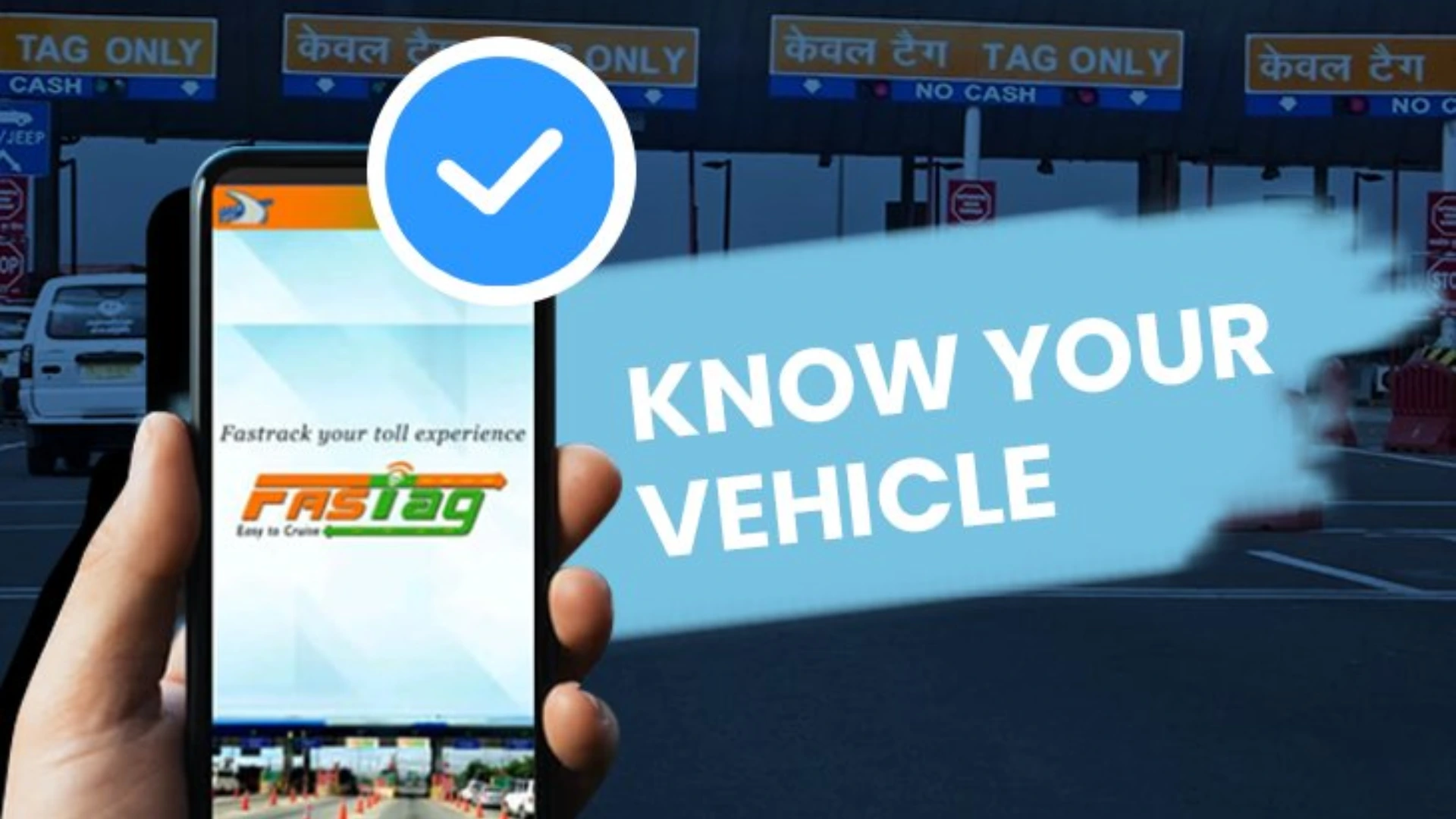
Table of Content
▼In a major move to curb growing FASTag-related frauds, the government has introduced the KYV (Know Your Vehicle) system. After the success of KYC (Know Your Customer), this new initiative aims to ensure every FASTag is genuinely linked to the correct vehicle. The National Payments Corporation of India (NPCI) has made the process mandatory, directing all issuers to follow a strict one-vehicle-one-tag policy.
What is KYV (Know Your Vehicle)?
KYV works like KYC, but for vehicles. It is a digital verification process that authenticates every FASTag by linking it to the vehicle’s Registration Number (VRN) and chassis number.
Key details of the KYV initiative:
- Introduced by the National Highways Authority of India (NHAI) and implemented by NPCI.
- Mandatory from October 31, 2024.
- Every FASTag must be connected to real vehicle data and images.
- Verification must be renewed once every three years to maintain updated records.
Why KYV Was Introduced
Recent reports of FASTag misuse pushed the government to roll out KYV. Fraudsters were found using multiple FASTags on a single vehicle or duplicating tags for unauthorized toll passage. The KYV system ensures transparency and prevents:
- Tag duplication or misuse.
- Illegal transfer of FASTags between vehicles.
- Revenue leakages at toll booths.
Step-by-Step KYV Application Process
Completing your KYV process is simple and can be done online through official FASTag portals or your bank’s app:
- Grab Your Documents – Keep your Registration Certificate (RC), vehicle registration number (VRN), chassis number, and FASTag-linked mobile details ready.
- Log In – Access your bank’s mobile app (HDFC, ICICI, SBI) or payment portals like Paytm, Amazon Pay, or ICICI FASTag. Search for the “KYV” or “FASTag Verification” section.
- Upload Photos – Submit 4–5 clear images of your vehicle (front, rear, sides), FASTag sticker on the windshield, and scanned RC.
- Submit for Review – Once uploaded, submit your details. Verification typically takes up to 7 working days.
- Confirmation & Recharge – You’ll receive approval via SMS or email. Ensure your FASTag balance is updated to avoid payment interruptions at toll plazas.
KYV vs KYC – The Difference
|
Parameter |
KYC (Know Your Customer) |
KYV (Know Your Vehicle) |
|
Purpose |
Verifies identity of the tag owner |
Verifies authenticity of the vehicle using FASTag |
|
Required By |
Banks and payment issuers |
NPCI and NHAI |
|
Renewal Cycle |
Once per account |
Every 3 years |
|
Documents |
Aadhaar, PAN |
RC, chassis number, vehicle images |
|
Objective |
Prevent misuse of payment accounts |
Prevent FASTag fraud and duplication |
Impact on Drivers and Transporters
For regular commuters and transport operators, completing KYV ensures smooth highway movement. Once verified, there are no additional charges or hassles. However, failing to update details before the deadline may result in tag deactivation.
Unverified FASTags could lead to:
- Cash-only toll payments.
- Delays during highway trips.
- Additional fines or penalties.
Frequent highway users such as logistics providers, taxi operators, and interstate buses are advised to complete KYV immediately to avoid disruptions.
Neha Mehlawat
Neha Mehlawat is an automotive journalist and industry analyst with 10+ years of experience covering cars, bikes, and mobility trends. She tracks the latest launches, technology upgrades, and policy changes in the auto sector, delivering sharp insights that help readers stay ahead in the fast-evolving world of automobiles.

_1772434876.webp)
_1772098099.webp)


